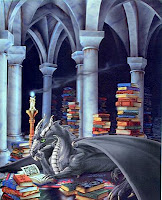
If you want to start an argument between writers, just ask what is more important to a story: characters or plot. It’s the politics or religion debate of the writing world. It’s a subject in which you will never be able to change a writer’s mind once he or she has decided, and what is at the core of our writing styles.
The safe answer – the one that most of us commit to – is that both are important. It’s true. For a good story you need both plot and characters. But as for which is more important, I will side with characters every time.
If you look at the craft of storytelling, I think it’s important to focus on your characters in such a way that readers don’t think about the plot. The concept of plot is a technical aspect of writing. It’s not something I want my readers focusing on. All I want my readers worrying about what is going to happen next and how the characters that they have hopefully become attached are going to deal with whatever horrible things I do to them (or at least despise to the point where they want to make sure the character gets what he or she deserves) .
My other argument for characters over plot is that if you have strong, interesting characters, eventually they will insist that something happen, or they will go looking for trouble. Plots are driven by what the characters want, and the obstacles they encounter as they try to reach their goals. I could throw the same drastic obstacles at any set of characters, and the plot of the story would be different based on the character’s personality. If you have boring, flat characters – even if you throw the most interesting conflicts at them – readers won’t care how they react if they don’t like them or can’t relate to them.
There is an extreme side of characters vs. plot. If you have interesting characters that just sit around having witty conversation, but they don’t actually ever do anything or change in any significant way, you don’t have a story. Things need to happen.
However, if all you do is have things happen to your characters, and all they do is react, it doesn’t make a good story. Plots must be character driven. If I’ve learned anything in my several years of writing, it is that characters must be proactive. They must do things, not just react to what is happening to them.




